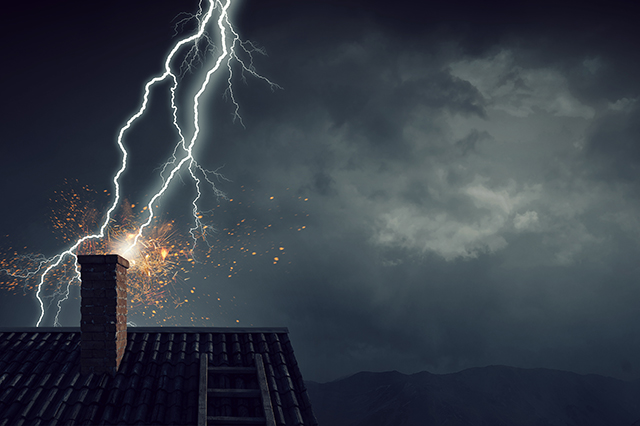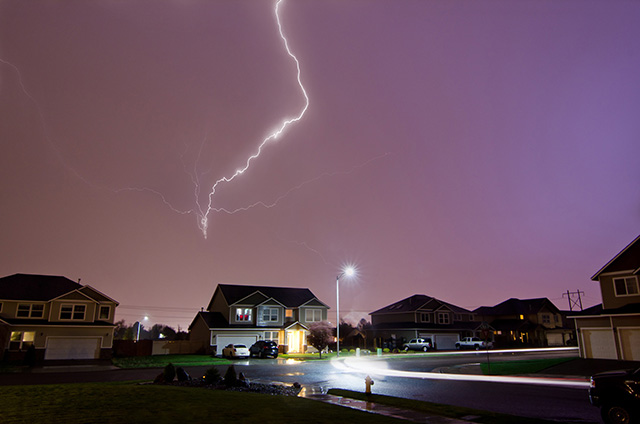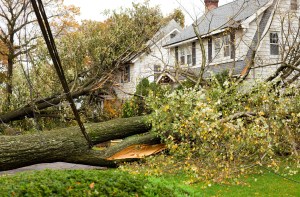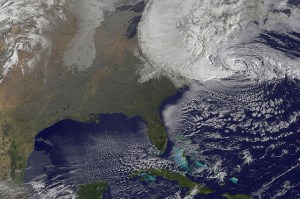Dealing with a lightning strike and navigating your homeowners insurance to ensure you’re covered is probably not something you’d normally expect to have to do. The probability of a house being struck by lightning is low, but if it does happen the damage can be severe. The best course of action is to always be prepared.
Surge and Damage to Electronics
Electrical surges caused by lightning strikes can wreak havoc on connected electrical appliances.
A standard homeowners insurance policy will cover damage to personal property — including electronics and appliances — resulting from covered events, such as a lightning strike. However, the insurance will only cover up to the limits of your policy. Given the increase of expensive electronics in homes, it is important to check with your insurance agent to ensure the limit in your policy is set high enough.
You may also want to review your homeowners policy to see if reimbursement for personal possessions is based on actual cash value or replacement cost. Actual cash value pays the amount needed to replace the item, minus depreciation. Replacement cost generally pays the dollar amount needed to replace a damaged item with one of similar kind and quality without deductions for depreciation.
Creating a full inventory of personal items before disaster strikes can ease the process of making a claim, as well as help to clarify if you have enough insurance or not.
Home Damage
If your house has been directly hit by a lightning strike, you should immediately call the fire department. Lightning strikes often lead to fires starting in an attic or within the walls of a house, which might be hard to identify until it’s too late.
Standard home property insurance will cover damages to your house and property due to fires caused by lightning. In the case of fire damage, it is also good to know if your homeowners insurance will cover additional living expenses, which are designed to foot the bill of living elsewhere while your home is being repaired. This payout is usually about 20% of your home’s value.

The Best Insurance Is Disaster Avoidance
Taking steps to protect your valuable electronics and appliances, as well as your home from a lightning strike, can amount to tremendous financial, mental and emotional savings.
Most homes will already have a grounding system, such as a lightning rod, built into their house. Lightning rods are now designed to be incredibly inconspicuous, often not much bigger than a pencil. A good grounding system should be paired with point-of-use surge protection devices. These devices can vary from whole-house surge protectors, which are installed at your home’s main electrical panel, to surge protector strips. Even with surge protectors in place, it is advisable to unplug high-value electronics during storms.
Also, be sure to cut down or trim trees that may be in danger of falling on your home.
Professional Protection
If you’ve recently moved or made an addition to your current house, it is wise to call in a certified professional to ensure your place is as safe as it can be from lightning-strike damage.
Lightning will always take the easiest way to the ground when it hits a home, which means a custom lightning-protection system for your home can create pathways to safely guide the powerful surge of electricity away from valuables. However, only professionals will be able to install such a system with confidence.
Get more tips on how to safely deal with the potential dangers of thunderstorms and lightning before, during and after a storm occurs from Ready.gov.
By taking the necessary precautions, it is possible to minimize the chances of significant damage to your personal property and home. However, if a disastrous lightning strike does cause a power surge or fire in your house, your standard homeowners insurance policy should have you covered.
Learn about AAA home and condo insurance in your state.
Worried about lightning strikes and your homeowners insurance coverage? Leave your thoughts in the comments.
This article has been updated and republished from a previous version.
2 Thoughts on “Homeowners Coverage When Lightning Strikes”
Leave A Comment
Comments are subject to moderation and may or may not be published at the editor’s discretion. Only comments that are relevant to the article and add value to the Your AAA community will be considered. Comments may be edited for clarity and length.
















Several things to add to prevention.
1. Make sure that any water meter replacements include proper reconnecting of the ground wire if placed there. Most public works departments are clueless on how or why to reconnect grounding.
2. Make sure that cable tv and phone lines are bonded to the lighting protection system (common location for all grounding).
3. Add lighting protection to any roof mounted TV/radio/Dish installations. Bond to common ground area.
4. Periodically, have an electrician tighten all wire connections at the electrical service panel.
5. If you have aluminum wiring in the home, follow the National Electric Code on wiring maintenance as the wires loosen up over time.
Excellent article on lightning strikes. Thanks. Keep up the good work.